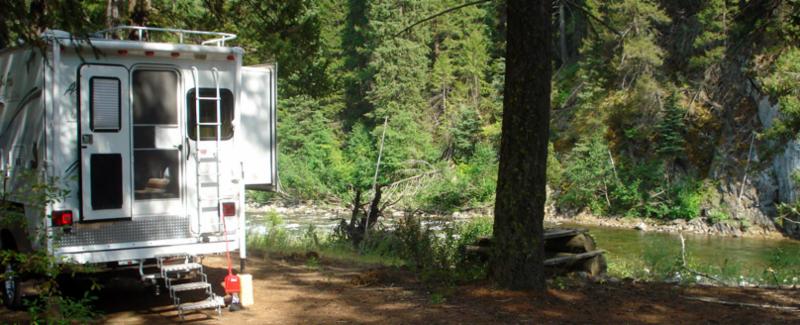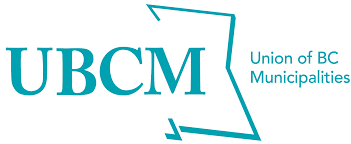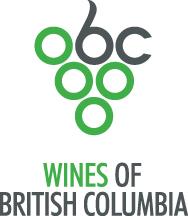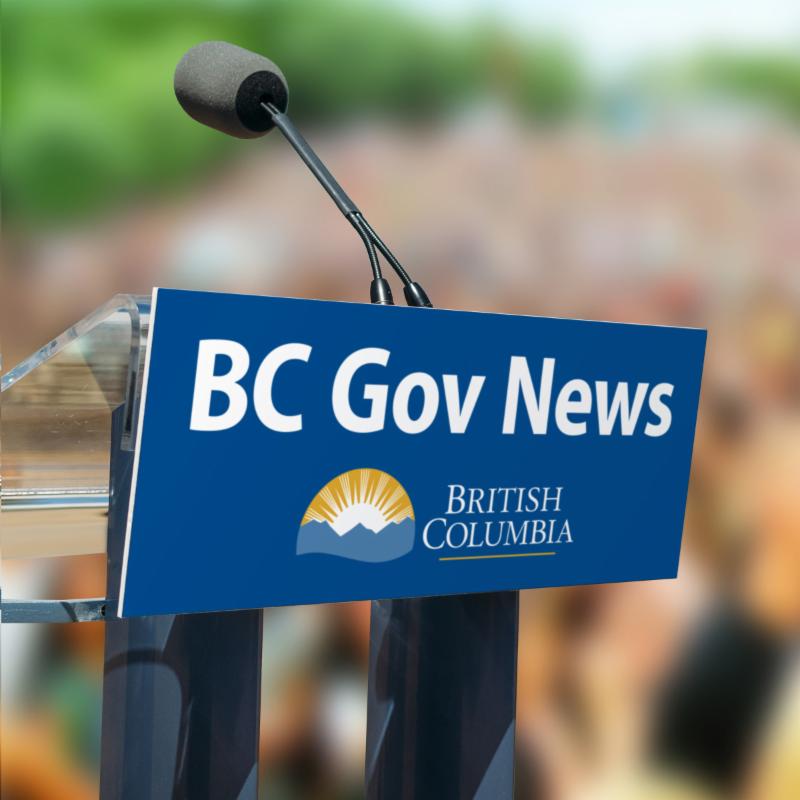Voice of the BC Tourism Industry

|
|
CEO's Message

While August usually serves as a welcome respite from the many meetings that occupy the other 11 months of the year, TIABC continues to work on several files that remain open and active.
This week, Policy Committee chair Bruce Okabe, vice-chair Paul Nursey and I met with Minister Peter Fassbender (Minister responsible for Translink) to formally present TIABC's policies on ride-sharing and short-term rentals. Minister Fassbender has been charged with soliciting feedback from a wide array of stakeholders to explore issues and opportunities pertaining to the sharing economy with a view to determining government's role in regulating or facilitating changes. A report on what government now refers to as 'ride-sourcing' will be ready for further public input in September.
On a related note, TIABC was successful in its bid to host a workshop during September's UBCM convention in Victoria on
 the ramifications of short-term rentals (STRs) throughout the province. While I have the privilege of moderating the session, I'm more excited by the calibre and influence of the panellists that include: Tourism Whistler CEO Barrett Fisher; BC Hotel Association CEO James Chase; Tofino Mayor Josie Osborne; Nelson Mayor Deb Kozak; and Revelstoke Chamber of Commerce Executive Director Jamie Mayes. TIABC continues to play a lead role on this file with the goal of seeing a provincial regulatory framework to allow for the collection of accommodation taxes by service providers such as Airbnb. It is expected that the workshop will be lively and well attended as communities debate a proposed resolution on STRs.
Last week, TIABC submitted a formal position to the province on
formula funding for Destination British Columbia (DBC). Our board's preferred option revolves around the premise that an annual budget appropriation is necessary supplemented by a percentage of the aggregate PST collected by accommodation providers, bookended with a floor and ceiling on the amount remitted to DBC in any given year. The province is actively reviewing formula funding with an anticipated outcome sometime this fall.
Other files on the go include TIABC's work on the Emergency Preparedness and Reputation Management initiative being led by Destination BC with committee members that also include Cariboo Chilcotin Coast Tourism Association's Amy Thacker (chair), TOTA's Glenn Mandziuk, Aboriginal Tourism BC's Brenda Baptiste, Angela Rafuse, and Andrew Little of the Tourism Policy Branch. The committee's mandate is to provide advice on future roles and responsibilities, as well as actions tourism industry organizations and stakeholders can take when dealing with emergency situations or activities that may impact the reputation of tourism partners, tourism regions and/or the province as a whole. The committee's first report and recommendations will be unveiled in September.
You may recall that TIABC submitted a position paper with recommendations to government in January regarding proposed regulation changes that would have seriously impacted British Columbia's burgeoning Agri-tourism sector. We are pleased to see that government has
brought clarity to permitted
agri-tourism activities and
established
new opportunities around events
such as weddings
, concerts and festivals on farmland
to help farmers
supplement
their incomes
. Complete details are available on the Ministry of Agriculture's website:
news.gov.bc.ca/ministries/agriculture
On the labour file, TIABC has partnered with go2HR to develop a report that helps to inform the business case on the need for a
Seasonal Tourism Workers Program (STWP) to address labour shortages throughout BC. The report will be shared with the federal government who is in the midst of reviewing the revised
Temporary Foreign Workers Program with more anticipated changes to be introduced this fall. We recognize that STWP is not the panacea for labour challenges but merely one step as part of a much larger solution to address the need. However, it behoves us to explore interim measures to provide some relief to employers before more permanent or broader changes are implemented.
And finally (at least for this newsletter), I am pleased to have been asked to serve on the committee overseeing the development of a
first-ever joint strategy to support, sustain, and grow adventure tourism
(AT)
in the province.
The s
trategy will help to shape the future of the AT sector for years to come, inspiring new ways of th
inking about adventure tourism and its many benefits, as well as
identifying concrete measures to support the AT businesses that play such a key role in providing world-class experiences to visitors to BC.
Please be sure to visit the Members-only section of our website for further details on our formula funding submission. In the meantime, I hope you take time to #ExploreBC this summer.
Walt Judas
CEO
|
|
TIABC Welcomes Four New Members
3S Consulting - A provider since 2010 of Strategic Sustainable Solutions for Business.
Specializing in strategic sales, marketing & communications planning including customer service training and facilitation.
www.TwistConsulting.ca
Tourism Cowichan is the Destination Marketing Organization representing Ladysmith, Chemainus, Crofton, Maple Bay, Duncan,
Cowichan Bay, Lake Cowichan, Mill Bay, Cobble Hill and Shawnigan Lake.
 Located on Tsawwassen First Nation Lands, Ivanhoé Cambridge's Tsawwassen Mills will include a unique mix of premium fashion brands, factory outlets, restaurants and first to market retailers, as well as a 1,100-seat food court. Opens October 2016. www.TsawwassenMills.ca
Located on Tsawwassen First Nation Lands, Ivanhoé Cambridge's Tsawwassen Mills will include a unique mix of premium fashion brands, factory outlets, restaurants and first to market retailers, as well as a 1,100-seat food court. Opens October 2016. www.TsawwassenMills.ca
Renewals for most members were sent in July. Please check your emails for a reminder notice. Thank you to those members who have renewed.
|
|
Federal Government Seeks Input on Canada's New Tourism Vision
The Honourable Bardish Chagger, Minister for Small Business and Tourism is in the process of developing Canada's New Tourism Vision
, a set of policies and initiatives focusing on increasing international visitation to Canada and growing Canada's tourism sector.
Minister Chagger reached out to our partner, the Tourism Industry Association of Canada (TIAC), asking for input as well as the input of their members in helping shape the program's objectives.
TIABC members and BC's tourism industry at-large are encouraged to take advantage of this opportunity to voice your opinion and recommendations because after all...#BCTourismMatters.
The survey ends mid-August 2016.
http://ic.sondages-surveys.ca/s/Stakeholders_Consultations/?l=en&utm_source=Tourism+Vision+Survey+EN+July+2016&utm_campaign=Visa+Winter+2015&utm_medium=email
|
|
BC Wine Wins with New Deal

Local wine may start flowing eastward in greater volumes with a recently signed inter-provincial deal.
The new trade agreement is expected to cut down on red tape for BC wineries and open up markets in Ontario and Quebec for local wine.
BC Wine Institute Director, Ezra Cipes said this will be an opportunity for those in Central Canada to get a taste of western wines.
"Each wine region across our country has something unique to offer consumers who are looking for a diversity of choices," Cipes said. "This change is a step in the right direction for Canadian wine lovers to discover the beauty and diversity of Canadian wines."
BC Wine Institute (BCWI) president and CEO Miles Prodan said the benefits would extend to wineries in Ontario and Quebec.
"We strongly believe in the free trade of Canadian wine and this is a great common-sense change that will positively impact wine producers from all three provinces," Prodan said.
The deal follows similar agreements with Saskatchewan, Nova Scotia and Manitoba.
There are currently more than 320 wineries in BC, up from 70 in 2001.
The industry has created more than 10,000 jobs in the province, according to BCWI.
|
|
New Agricultural Land Reserve Rules Clarify Agri-Tourism Regulations

The British Columbia government has brought clarity to permitted agri-tourism activities and has established new opportunities around events such as weddings in the Agricultural Land Reserve (ALR), to help farmers supplement their incomes and help British Columbians share the growing passion for local foods and farming.
TIABC is pleased to have been part of the stakeholder group that submitted input to the Ministry of Agriculture on this important issue. You can read more about TIABC's involvement in the Members-only section of our website.
The Ministry of Agriculture has developed a regulation that establishes that ALR land owners will not need a permit from the Agricultural Land Commission (ALC) to host specific activities like commercial weddings, concerts or non-agriculture related festivals providing that the following conditions are met:
- The farm is classified as having farm status under the Assessment Act;
- No new, permanent structures are being built;
- All parking must be on the farm (no road parking) but the parking area must not be permanent nor interfere with the farm's agricultural productivity;
- The number of guests at any event is 150 or less; and
- The number of events is 10 or less in a calendar year.
|
|
Contract Opportunities - Aboriginal Tourism Association of Canada
ATAC is looking to fill two contract positions supporting its marketing efforts. The first is for the development of 10 Aboriginal travel itineraries ahead of ATAC's participation at GoMedia. The second is for a Marketing Coordinator (based out of Vancouver) to support the development of ATAC's marketing strategy.
Candidates should have no less than five years of relevant experience and ideally are Aboriginal or have experience working within Aboriginal tourism. Interested individuals should email [email protected] for more info.
Closing date for applications is
August 8 at 1:00 PM PST.
|
|
New Fishing Tourism Marketing Partnership Launched
The initiative will join together all of the fishing sector tourism-related stakeholders in one collaborative effort to market BC as a world-class fishing destination. BC's tourism industry is experiencing a resurgence. Revenues have grown by more than 37 per cent in the last decade. In 2014, tourism generated $14.6 billion in revenue, a 5.1 per cent increase over 2013.
Fishing tourism is one of BC's pioneering tourism sectors and continues to be a key economic driver for rural and coastal communities. Recent studies indicate that more than 400,000 annual fishing licence holders produce $936 million in annual sales and contribute $144 million to the province's gross domestic product. The sport fishery is now the single largest economic driver of all BC fisheries.
The new initiative is intended to bring together BC's fishing tourism sector stakeholders, both freshwater and tidal water to generate greater marketing impact, raise the profile of the sector and increase the number of anglers in BC.
Better alignment of marketing messages and improved effectiveness of investments has attracted participation from a wide array of partners, including freshwater and saltwater fishing resorts, angling guides, charter operators and community and sub-regional destination marketing organizations from across the province.
This project will also align the fishing tourism marketing strategies with provincial and regional tourism strategies, including BC's refreshed Super, Natural British Columbia® brand.
The past few years have seen positive growth in tourism throughout most regions of BC. Fishing tourism stakeholders are well positioned to invest in a promotional initiative that will highlight BC as a world-class fishing destination.
|
|
Vancouver Island Seeking Whale Heritage Site Designation

Communities in the northern Vancouver Island region are working together for international accreditation as a Whale Heritage Site. "Vancouver Island North currently meets all the criteria required to become a Whale Heritage Site, including those that focus on how people co-exist with, benefit from, conserve, and celebrate cetaceans," explains Andrew Jones, President of the North Island Marine Mammal Stewardship Association (NIMMSA). He says "accreditation may bring regional, national, and global attention to the area and help to promote sustainable tourism, marine conservation, and the whale-related cultural heritage of coastal communities".
First Nations people of the northern Vancouver Island region have shared a cultural connection with killer whales for thousands of years. The area contains the world's first ecological reserve for whales and is home to some of the longest-running whale research projects ever conducted. It is also where Canada's commercial whale watching industry began. The Whale Heritage Site initiative, recently launched by the World Cetacean Alliance aims to identify unique locations around the world where cetaceans have played an important role in the development of community, conservation, culture, policy, science, arts, and the economy.
A Vancouver Island North Whale Heritage Site would recognize the unique ways that people relate to whales in the area. The certification does not aim to impose limitations but rather to highlight values that already exist. An advisory team consisting of representatives from regional government bodies, tourism industry stakeholders and non-governmental organizations including the NIMMSA, the Regional District of Mount Waddington, Aboriginal Tourism BC, Community Futures, the MERS Marine Education and Research Society, the City of Campbell River, Raincoast Research and Tourism Vancouver Island have provided input on the initial application for Whale Heritage Site status for the northern Vancouver Island region.
|
|
#BCTourismMatters
Tourism Numbers Increasing in Penticton
Halfway through the summer season, it looks like 2016 is going to turn out to be a banner year for tourism in Penticton. Tourism Penticton is seeing
a shortening of the shoulder seasons, an increase is the number of U.S. visitors coming from a little bit further than neighbouring states, and more families that are coming with smaller children.
Tourism Up in Peachland
Q2 visitor centre numbers show the number of visitors jumped by nearly half from 2,700 to 4,006, dwarfing increases of 27 per cent and 12 per cent in the last two years, respectively.
YVR's Passenger Numbers Soar to All-time High
Vancouver International Airport (YVR) handled a record number of passengers in 2015.
Craig Richmond, president and CEO of the Vancouver Airport Authority, said 2015 was a massive year across all sectors resulting in a record year-end high of 20.3 million passengers.
"Last year was a big one at YVR," said Richmond. "This is great news as we forecast to surpass 21 million passengers for 2016 and work towards our ambitious goal of 25 million by 2020."
YVR posted a 3.2% increase in domestic travellers, a 4.3% jump in transborder passengers and a 6.8% increase in international fliers last year. Fliers from Europe were up 6.5%, and there was also a major jump in Asia Pacific passenger traffic (7.4%).
According to Statistics Canada, passenger rates increased at airports across Canada by 2.7%, to 133.4 million in 2015. The biggest expansion of fliers came in international traffic, up 6.6%. Domestic flights posted an increase of 1.9%. Provincially, BC recorded one of the largest increases in air travel with boosted number across the board: domestic (3.2%), transborder (3.6%) and international (6.7%).
Read more at:
The annual Travel + Leisure World's Best Awards are internationally recognized for representing standout businesses in the travel category. Based on a tightly controlled annual survey, the winners are selected by readers, who offer authentic recommendations about their experiences. Results appear in the August 2016 issue of Travel + Leisure magazine, and on
Travel + Leisure's website.
For 2016, BC captured international attention with
Mountain Trek of Ainsworth Hot Springs clinching the top spot in the Best International Destination Spa category -- recognized for its spa cuisine, wellness focus and striking landscape.
Vancouver Island was named the Best Island in Canada for the second year in a row. BC accommodation properties also dominated in two national categories. In the Best Resort Hotels in Canada class, BC carried five of the 10 properties. Under Best City Hotels in Canada, BC properties took the number one and two spots winning a total of six out of the 10 awards...more than half the category.
BC Winners in the 2016 Travel + Leisure World's Best Awards:
- The Best International Destination Spa
- The Best Islands in Canada
- The Best Cities in Canada
- The Best Resort Hotels in Canada
- The Best City Hotels in Canada
|
|
Research
Tourism Indicators
Passenger volume to YVR has increased every month this year compared to the same period in 2015, and year-to-date, (January-May) is up 7.4%. Year-to-date (January-May), BC Ferries has had over 7 million passengers, an increase of 4.5% over the same period in 2015. See the Tourism Indicators on the
Destination BC website.

Custom Entries
May 2016 saw an increase in customs entries from most of our key international markets. Overall international overnight entries to BC increased 4.8%, Mexico increased 29%, China was up 10.2% and Europe overnights were up 5% over 2015. The International Visitor Arrivals publication summarizes custom entries data to British Columbia and Canada from selected markets of origin. See Custom Entries on the
Destination BC website.
National Tourism Indicators 
Highlights from the 2016 National Tourism Indicators released by Statistics Canada
on
June 29, 2016.
-
Total tourism demand increased
3.5%
in Q1 2016, totaling
$17.7 billion
of expenditures, thanks to robust growth in tourism exports.
-
Tourism employment rose slightly (
+1.8%
) during Q1 relative to the same period in 2015, averaging
637,000
jobs throughout the first three months of the year, with
gains
in
transportation
,
accommodation
,
food and beverage services
,
recreation and entertainment
and
other tourism industries
.
-
Tourism GDP increased
5.7%
in Q1 2016 (to
$6.9
billion) compared to Q1 2015, accounting for
1.6%
of Canada's total GDP in the first three months of
2016, up from 1.5% in Q1 2015.
-
Tourism exports soared by
11.1%
compared to Q1 2015 (to $
3
billion) driven by strong overnight visitation numbers from the United States (+17.1%) and overseas (+9.0%).
-
Domestic tourism demand rose
2%
in the first quarter of 2016 (to
$14.6
billion) mainly due to
increased
spending by Canadians visiting other parts of the country in the
recreation and entertainment
and
accommodation
sectors.
-
Prices for tourism commodities contracted for a second consecutive quarter in Q1 2016, with a year- on-year implicit price index of
-0.8% due to lower
prices for transportation services.
|
|
|
In This Issue
|
CEO's Message
TIABC News
Industry News
#BCTourismMatters
Research
Calendar of Events
|
|
Calendar of Events
|
September 1, 2016
September 19, 2016
September 26-30, 2016
October
October 3-4, 2016
October 4-6, 2016
October 4-5, 2016
February 22-24, 2017
Victoria, BC
BCHA / ABLE BC
April 3 & 4, 2017
Victoria, BC
Visit TIABC's
Event Calendar for more events. Tell us about your event and we will add it to the list.
|
|